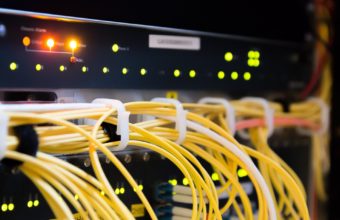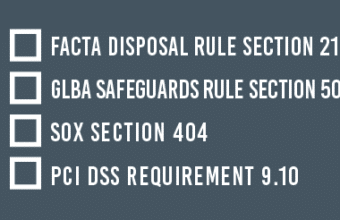Compliance
-
When is my Equipment Obsolete?
Every few months, operating system updates are being rolled out. In the past, these updates were only released every 3-4 years and just a percentage of users would upgrade due to the cost and overall hassle. Today, these updates must be installed immediately to ensure data security. If an update or patch is missed, it […]
read more -
How to Recycle Light Bulbs in Sioux Falls
Compact fluorescent lightbulbs (CFLs) often used for streetlights, floodlights, parking lots, and industrial lighting, can be recycled at SEAM in Sioux Falls. Residents may also recycle their bulbs at the Sioux Falls HHW facility. Under the Resource Conservation and Recovery Act (RCRA), these lamps are classified as hazardous waste and cannot just be thrown in the […]
read more -
How to Plan for IT Equipment Decommissioning
All computer equipment becomes outdated at some point in its life-cycle. Planning ahead for the decommissioning, replacement and re-marketing of your obsolete IT assets is a necessary step to avoid unexpected risks. When you are approaching this phase in your IT asset management (ITAM) process, it’s time to make a plan for IT Asset Disposition […]
read more -
Understanding Financial Regulations with ITAD
The world of financial services and banking regulation is daunting. Organizations must ensure appropriate administrative, physical, and technical safeguards are taken to prevent unauthorized disclosures of both personally identifiable information (PII) and non-public information (NPI), whether or not it appears to be sensitive or confidential. With traditional focus on network security and encryption to keep […]
read more -
Every Bank Needs This Checklist
Financial institutions face daily challenges when it comes to compliance, protecting customer data, and managing third-party risks. With a heavy focus on internal security, the risk of equipment leaving the premises for recovery, recycling or disposition is often an after thought. Complying with Regulations Under regulations such as the Gramm-Leach-Bliley Act (GLBA) and the Sarbanes-Oxley […]
read more -
Why Should You Care about ITAD?
When organizations are ready to get rid of their old IT equipment, the data must be completely removed. If not, there is serious risk of liability issues, especially in highly regulated industries like healthcare and finance. Across the board, companies are required to tightly manage any private data they collect or store until the information […]
read more -
Recycling Government Electronics
Play Video As local, state and federal agencies replace outdated technology equipment, compliance is critical. When deciding to dispose of, recycle, or sell your electronics make sure you are meeting all required legislation and standards. Watch our video to learn what requirements are in place for government agencies when recycling electronics. SEAM offers R2 and […]
read more -
Federal Agencies: What to Ask Your Electronics Recycler
Each year, federal agencies and facilities purchase billions of dollars worth of information technology equipment and services. As the single largest consumer in the world, the U.S. government has a unique opportunity to provide leadership in how they manage electronic assets through acquisition, use and disposal. According to Executive Order (E.O.) 13514, government agencies are required to use […]
read more -
HIPAA ALERT: Business Associate Agreement
As a covered entity, you are required to have a written agreement in place with all business associates. This includes any third party vendors who handle your computer equipment, including servicing, reuse, resale or electronic recycling. Even if you have an in-house data destruction policy, an agreement will cover you if by chance a hard […]
read more














